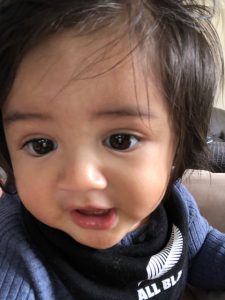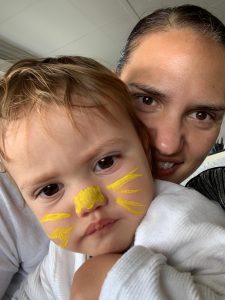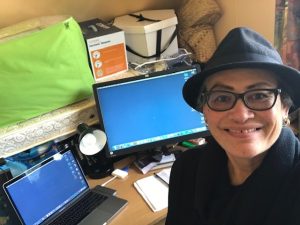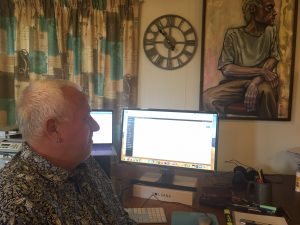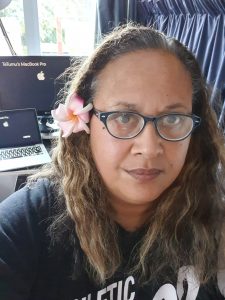The Lockdown has proved hugely disruptive to all Te Tumu staff, impacting on all aspects of our academic lives, including research. We now move from Lockdown to Level 3 – which so far doesn’t look too much different for us. Despite this, we have still been managing to keep our research productivity going, hopefully with some “outputs” in the offing.
To find out a little bit more, I sent out a request to staff to send in a few details on the highs and lows of their research during lockdown.
First, let’s talk about some of the problems. Some staff talked of getting “zui’d out”, i.e. too many Zoom hui. There’s been some research on how tiring Zoom meetings can be, and what with teaching online, staff and school meetings, supervision get-togethers, and other hui, it can seem like some days we are constantly on Zoom. Then there’s the extra effort preparing for online teaching, especially in the reo classes where you need to convert the quick-flowing quick-changing interactive tasks into online teaching activities.
Then there are the events that have been cancelled or deferred, such as Poia Rewi’s Māori language symposium that he had planned with the Government Department Collective, and Michelle Schaaf’s planned delivery of Summary Report for ‘Childhood in a Changing Pacific’: Samoa and Dunedin to Pacific communities in Samoa and Dunedin. Lachy Paterson had also been planning to kick off his upcoming research and Study Leave (RSL)with a couple of conferences in France, but these have both been cancelled.
Then there’s working from home. Three of our staff have young children also locked down with them, which creates its own complications. As Karyn says, she has also been “researching meal plans for a fussy eater and activities to keep a 13 month old entertained” – hard work when “food still refuses to get eaten and suggested activities don’t keep her attention for longer than 5 minutes!!” And one person complained (was it a complaint?) that “My new office space is far too close to the pantry”.
So if those were the lows, what were the highs?
Poia says he is pleased that Gianna Leoni and Tangiwai Rewi have come on board the Te Reo Me Ngā Tikanga Māori Platform for 2020 research, looking at the impacts of research by researchers under Ngā Pae o te Māramatanga. Gianna is also feeling chuffed that she has finished a research proposal she had been needing to do for a few months – and having it accepted.
Tangiwai, as Chair of the Te Tumu Research Committee, also organised a “Hot Tips” Zoom session with staff earlier this month, on how to enhance their applications for University of Otago Research Grants (UORGs). We were really pleased to have the ebullient Humanities Associate Dean (Research), James Maclaurin there to share his knowledge with us.
Both Lachy and Tangiwai are on RSL next semester, so have been revising their travel, and research and writing plans, which has been difficult given that no one knows how long we will be in Level 3, or when normality will return.
Lachy has been organising getting the proofs and indexing for a new edited collection on Indigneous textual cultures, which will hopefully be out in September. See here for more info. He been working on the Te Hau Kāinga/Māori Home Front project, including translating the blog posts. If you haven’t read the latest ones (in English or Māori) then check them out at the project website. You can also listen to him and Angela Wanhalla promoting the project on Radio New Zealand’s Saturday Morning programme on Anzac Day: Lachy has also been asked to submit an abstract for a chapter on Māori newspapers in The Edinburgh Companion to British Colonial Periodicals.
Michelle has been busy transcribing interviews, sorting participants’ diaries and personal papers collected during her recent RSL, in preparation for UORG application. She is also part of a team who have just completed the Summary Report for Childhood in a Changing Pacific: Samoa and Dunedin. She has also been chosen to write a chapter for an e-book for Bridget Williams Books on “’Thesis Survivor Stories”, to be published in June.
Megan Pōtiki is busy on finishing her thesis. She recently published “Te hū o Moho: The call of the extinct Moho: The death of the Māori language at Ōtākou” which appeared in the latest issue of Te Pouhere Kōrero.
Lyn Carter has completed a journal article during the Lockdown, which she has sent off to a Sami journal. Otherwise, she says, she has been having lots of Zoom meetings with various research clusters around climate change and health/climate change and environment, including on her National Science Challenge projects, Building Better Homes, Towns and Cities, and BioHeritage.
Building on her publishing success from last year, Telesia Kalavite, is currently writing a journal article for the New Zealand Journal of Educational Studies. She is also one of the principal applicants for a successful grant application for Humanities Research Network with an amount of $10,000 for 2 years. The name of the project is: “Pacific Thought Network (PacTNetwork)”. Telesia is now developing an application for UORG grant to further her research.
Our newest staff member, Vaivaimalemalo Michael Ligaliga, has been very busy. He has been developing a book proposal for Palgrave Macmillan based on his PhD thesis, as well as a UORG application. Michael has also been working on a chapter on the Samoan perspective on addressing domestic or family violence for the Handbook of Positive Peace , and another for Decolonizing Indigenous Research Methodologies in Peace and Conflict Research.
Michael Reilly has been continuing his work, writing chapters about Māui Pōtiki, one on a Ruapuke Island narrative, and another looking at two stories by Mohi Ruatapu. His aim is to incorporate these chapters into a book about Maori tribal traditions, perhaps with Auckland University Press, building on the kind of topics he has taught in his MAOR207 and INDV307. Michael has also been asked to contribute a chapter on emotions in the Pacific and Australia for an edited book, The Routledge Modern History of Emotions.
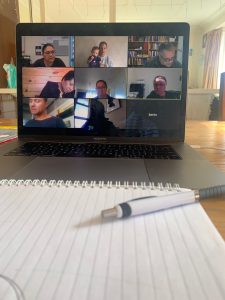
Perpetual hui on Zoom! Here Karyn and Manuhou are attending a board meeting for Te Rūnanga Māori of Ako Aotearoa.
The Lockdown has disrupted Karyn’s Marsden research, so she’s been busy working on a new plan, and catching up on some of her reading. She has recently been published by Lancet Oncology. This came from an invitation to her and her collaborators to the International Gastric Cancer Linkage Consortium in Wānaka last year to share their research on updating the international practice guidelines for Hereditary Diffuse Gastric Cancer. Karyn is currently working on the final draft of a book chapter she is co-writing with Marcelle Wharerau (ex-Te Tumu student, now teaching at Waikato University) on subversive pedagogies entitled, “Tūngia ki te marae, tau ana – culturally transformative learning in universities”.
Paerau Warbrick was enjoying his RSL when the Lockdown was imposed, focusing his research on historic Māori elections, and the lawsuits that often went with them. He has just finished a draft article on the 1876 Eastern Maori election petition involving Hēnare Pōtae, Rōpata Wahawaha and Karaitaina Takamoana and the 1887 Northern Maori election petition involving Hirini Taiwhanga and Wī Kātene. Paerau is also working on an article on the monumental election battles between Wī Pere and James Carroll in the 1884, 1887 and 1890 elections, and making the finishing touches to another article regarding the UK Supreme Court and how it should take lessons from the NZ Court of Appeal Maori Council case of 1987 and the Foreshore and Seabed case of 2003.
Wherever you are, I hope you are all staying safe and keeping well, and being productive with your research (if that’s your thing).

